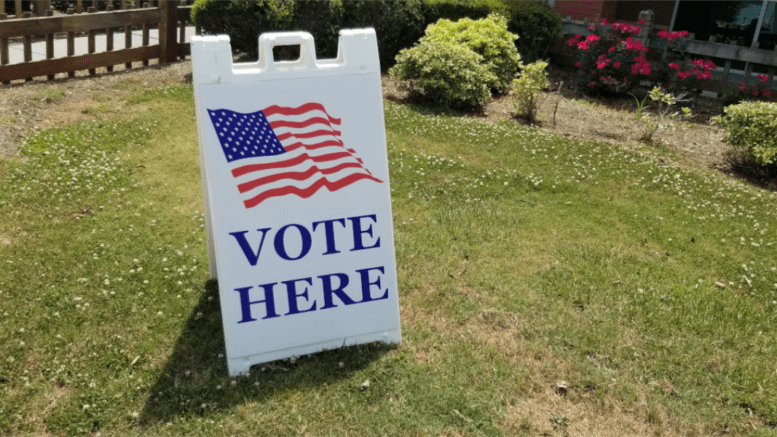by Kira Lerner, Georgia Recorder [This article first appeared in the Georgia Recorder, republished with permission]
September 15, 2022
A recent poll found that 69 percent of both Democrats and Republicans think democracy in the United States is in danger of collapse.
Almost two years after Donald Trump falsely claimed that voter fraud cost him the election and inspired a web of supporters and “big lie” candidates to also believe the election was rigged, a majority of Americans are worried that democracy, our system of government in which political decisions are determined by the will of the people, is unstable.
Yet most U.S. news organizations don’t convey that level of concern and do very little to equip Americans with practical information about what they can do to save democracy. Many newsrooms in 2022 grapple with limited resources and staff, making it difficult for the media to dedicate the time and space required to an issue as vast as the precarious nature of our democracy.
Without adequate attention on the issue, egregious claims from far-right candidates could become normalized and the news cycle moves on. Other important issues take over top stories.
But this week, for one day, news organizations including States Newsroom are going to try to demonstrate the scope of the problem.
On Thursday, a collaboration of organizations including Montclair State University’s Center for Cooperative Media, the Institute for Nonprofit News, and audience and engagement company Hearken want to show what it looks like to give democracy the attention it is due.
Coinciding with International Day of Democracy, roughly 386 media partners will publish stories drawing attention to the crisis facing U.S. democracy and sounding the alarm that democracy is on the cusp of collapse.
“We tend to take democracy, at least in this country, as a given,” said Joe Amditis, associate director of the Center for Cooperative Media, who is helping to organize Democracy Day. “We say that word so much, and we hear that word so much, that it loses its meaning in many contexts. It’s important, especially with all the anti-democratic activity that’s happening at every level of the government, to really stop and consider what it means to be a democracy, what it looks like to be a democracy, and really understand and grapple directly with why it’s so important to maintain and preserve that.”
States Newsroom’s 29 outlets will all participate in Democracy Day, with stories on a range of issues from threats to election officials to continued false narratives about the stolen 2020 election.
Reporters and editors with Colorado Newsline will discuss how election workers have taken their personal security into their own hands and will look into a new law that raises the standards for disseminating election material in languages other than English. Newsline will also take a deeper dive into Colorado’s enviable voter turnout numbers and examine the disparities among different demographics.
The Wisconsin Examiner will review the records of candidates for Congress and statewide offices who have given a platform to the false claim that the 2020 election was stolen and review how the state Legislature and the Supreme Court produced legislative maps in 2022 that were even more gerrymandered than those implemented a decade ago.
The Minnesota Reformer and Source New Mexico will fact-check their GOP candidates for secretary of state, who have both denied the results of the 2020 election.
And the Oregon Capital Chronicle will look into threats being made to county election offices over alleged election issues, requiring them to retain documents and distracting them from doing the work necessary to administer the upcoming election.
Other outlets, such as the Georgia Recorder, will discuss voter registration campaigns targeting Asian American and Pacific Islander communities and get-out-the-vote efforts on both sides of the aisle.
The stories by States Newsroom’s outlets and other participating news organizations will inform the public about the scope of the problem and give readers practical information about what they can do.
While Americans often believe that our democracy is strong and unassailable, researchers find that we have actually become a backsliding democracy, Amditis said.
“That in itself should raise alarm bells and what better institution to raise those alarm bells and to shine light on solutions than the so-called Fourth Estate?” he said. “If we can get everyone to work together on a single day to publish at least one story looking into these issues, we think that’s a good starting point.”
Georgia Recorder is part of States Newsroom, a network of news bureaus supported by grants and a coalition of donors as a 501c(3) public charity. Georgia Recorder maintains editorial independence. Contact Editor John McCosh for questions: info@georgiarecorder.com. Follow Georgia Recorder on Facebook and Twitter.
